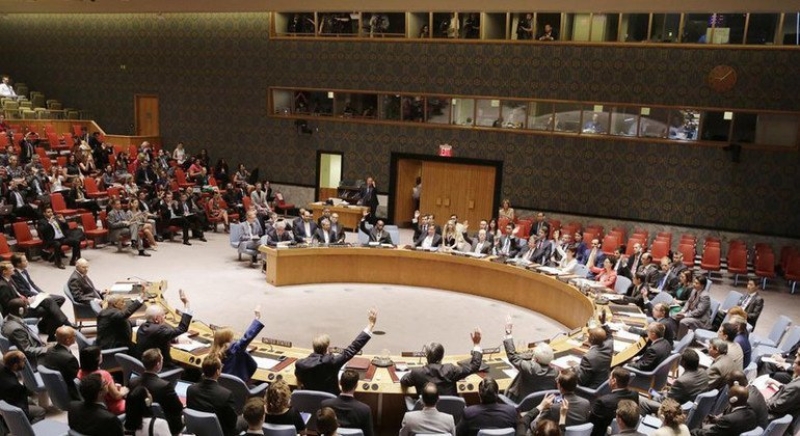- Puppet show enchants Children as Boi Mela comes alive on day 2 |
- DSCC Admin Salam’s drive to make South Dhaka a ‘clean city’ |
- 274 Taliban Dead, 55 Pakistan Troops Killed |
- Now 'open war' with Afghanistan after latest strikes |
- Dhaka's air quality fourth worst in world on Friday morning |
UN Chief Urges Restraint After Israeli Strikes on Iran

The UN Security Council unanimously adopted a resolution in July 2015 to monitor Iran’s nuclear programme. Photo: UN
Secretary-General António Guterres condemned Israeli strikes in Iran late Thursday evening and urged "maximum restraint" from Member States. The head of the UN-backed atomic watchdog also warned of the risk of a wider conflict.
Any military escalation in the Middle East should be censured, the UN chief said in a short statement issued by his spokesperson’s office.
“He is particularly concerned by Israeli attacks on nuclear installations in Iran while talks between Iran and the United States on the status of Iran's nuclear programme are underway,” said Farhan Haq, Deputy Spokesperson for the Secretary-General.
In an update on Friday, the head of the UN-backed atomic watchdog announced that Iranian authorities had confirmed that the Natanz enrichment site had been “impacted,” though existing radiation levels remained unchanged.
Iranian nuclear safety authorities also reported that the Esfahan and Fordow sites had not been affected.
“This development is deeply concerning,” said Rafael Grossi, head of the International Atomic Energy Agency (IAEA). “I have repeatedly stated that nuclear facilities must never be attacked, regardless of the context or circumstances, as it could harm both people and the environment. Such attacks have serious implications for nuclear safety, security and safeguards, as well as regional and international peace and security.”
According to reports, the Israeli military targeted Iran’s nuclear programme at multiple sites across the country late Thursday.
Iranian media reported the death of Hossein Salami, chief of the Revolutionary Guards, along with several nuclear scientists.
The strikes occurred just ahead of scheduled U.S.–Iran nuclear talks set to begin Saturday in Oman. Israeli schools were closed on Friday in anticipation of retaliation by Iran, amid reports that around 100 drones were launched toward Israel in the early hours.

